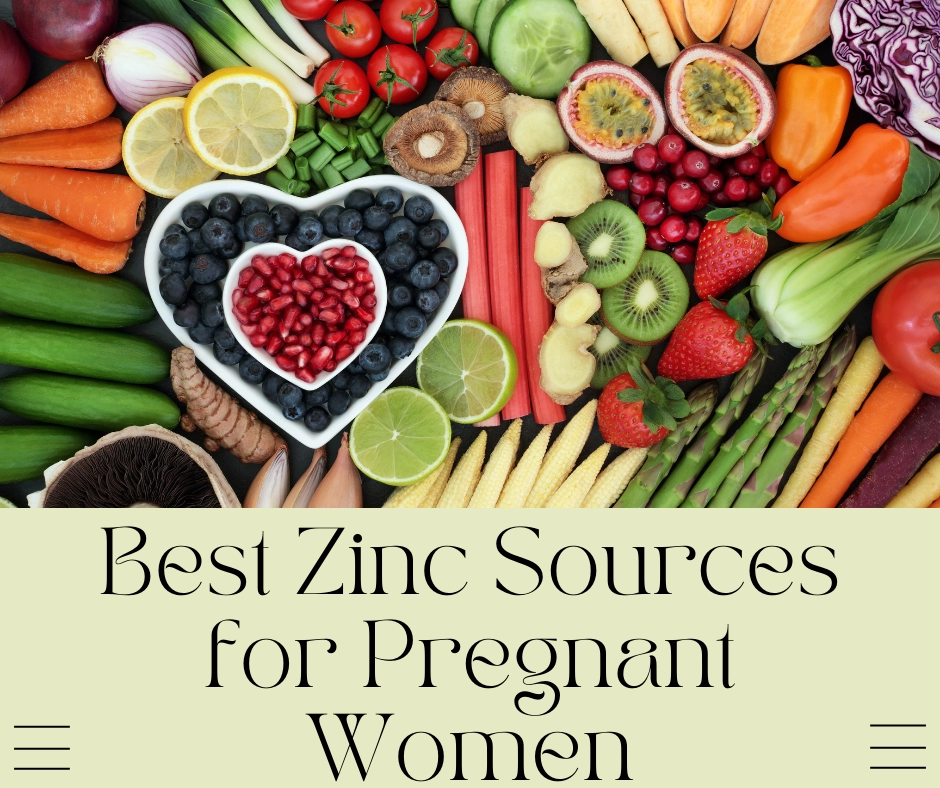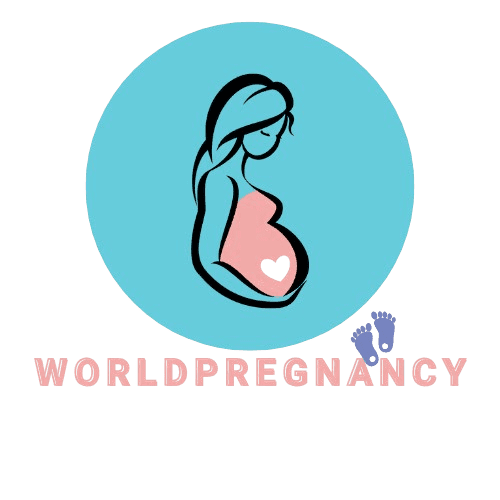Boost Your Health and Fetal Development
Discover the best zinc-rich foods for pregnancy to support your health and your baby’s growth. Learn why zinc is essential during pregnancy and explore a list of nutrient-packed foods to include.
Zinc is a crucial mineral for pregnant women, vital in fetal development, immune function, and overall maternal health. Because the body doesn’t store zinc, it must be consumed regularly through diet or supplements. In this blog, we’ll explore the best zinc-rich foods for pregnancy, their benefits, and how to incorporate them into a healthy diet.
Why Zinc is Important During Pregnancy?
Zinc is an essential mineral that plays a crucial role in pregnancy, ensuring maternal health and fetal development. Since the body does not store zinc, it must be consumed regularly through diet or supplements. Below are the key reasons why zinc is important during pregnancy:
1. Supports Fetal Growth & Development
Zinc is vital for cell division, DNA synthesis, and protein production, all of which contribute to the baby’s proper growth and organ development. A zinc deficiency can lead to low birth weight, preterm birth, or developmental delays.
2. Strengthens the Immune System
Pregnancy naturally lowers a woman’s immunity, making her more susceptible to infections. Zinc boosts the immune system, helping the mother fight off illnesses and reducing the risk of complications like colds, flu, and infections.
3. Aids in Neurological Development
Zinc is crucial for brain development and proper functioning of the nervous system in the growing fetus. It plays a role in cognitive function, memory formation, and learning ability.
4. Helps with Wound Healing & Tissue Repair
During pregnancy, a woman’s body undergoes numerous changes, including increased blood volume and tissue expansion. Zinc supports wound healing, tissue growth, and enzyme function, which helps maintain overall maternal health.
5. Regulates Hormonal Balance
Zinc plays a role in hormone regulation, including insulin, thyroid hormones, and reproductive hormones. Maintaining proper hormone levels is crucial for a healthy pregnancy, preventing gestational diabetes, and ensuring smooth fetal development.
6. Reduces the Risk of Complications
Studies suggest that adequate zinc intake can help reduce the risk of prolonged labor, preterm delivery, and low birth weight. It also aids in proper lactation and postnatal recovery.
7. Supports a Healthy Appetite & Reduces Nausea
Many pregnant women experience morning sickness, loss of appetite, and nausea. Zinc helps maintain a healthy digestive system and can alleviate some symptoms of nausea and vomiting.
How Much Zinc Do Pregnant Women Need?
The recommended daily intake (RDI) of zinc for pregnant women is 11 mg per day. However, in cases of deficiency, a healthcare provider may suggest supplements.
Best Zinc-Rich Foods for Pregnancy
- Animal Sources: Beef, chicken, fish, and shellfish
- Plant-Based Sources: Nuts, seeds, legumes, whole grains, and fortified cereals
- Dairy Products: Milk, cheese, and yogurt
- Eggs: A natural source of zinc and protein

Best Zinc Sources for Pregnant Women
1. Meat, Fish, and Poultry
Animal-based sources provide highly bioavailable zinc.
- Beef & Lamb: One of the richest sources of zinc.
- Chicken & Turkey: Lean protein with moderate zinc levels.
- Salmon & Tuna: Provide zinc along with omega-3 fatty acids.
- Shellfish (Oysters, Crab, Shrimp): Some of the highest zinc-containing foods.
2. Seeds and Nuts
A great plant-based source of zinc, rich in fiber and healthy fats.
- Pumpkin Seeds & Sesame Seeds: High in zinc and antioxidants.
- Cashews & Almonds: Boost energy and supply essential minerals.
- Pine Nuts & Walnuts: Also contain healthy omega-3s.
3. Legumes and Whole Grains
Plant-based sources that support vegetarian and vegan diets.
- Chickpeas & Kidney Beans: High in zinc and protein.
- Lentils & Black Beans: Good for digestive health.
- Quinoa & Brown Rice: Whole grains that contribute to daily zinc intake.
4. Dairy Products
Rich in zinc, calcium, and vitamin D.
- Milk & Yogurt: Support bone health and digestion.
- Cheese (Cheddar, Mozzarella): Great zinc source for non-meat eaters.
5. Eggs
A versatile and easily available zinc-rich food that also provides high-quality protein and choline.
6. Fortified Foods
Many cereals, bread, and plant-based milk options are fortified with zinc, making them accessible sources.
Zinc Deficiency in Pregnancy
Zinc is a vital mineral that supports fetal growth, immune function, and overall maternal health. Since the body does not store zinc, pregnant women need to consume adequate amounts regularly. Zinc deficiency during pregnancy can lead to various complications, affecting both the mother and the baby.
Causes of Zinc Deficiency in Pregnancy
Several factors can contribute to low zinc levels in pregnant women, including:
- Inadequate dietary intake – A diet lacking in zinc-rich foods like meat, dairy, and legumes.
- High phytate consumption – Whole grains and legumes contain phytates, which can reduce zinc absorption.
- Increased demand during pregnancy – The growing baby requires more zinc, increasing the mother’s daily needs.
- Gastrointestinal disorders – Conditions like IBS, celiac disease, or chronic diarrhea can impair zinc absorption.
Excess iron supplementation – High doses of iron can interfere with zinc absorption, leading to deficiency.
Symptoms of Zinc Deficiency During Pregnancy
Zinc deficiency can manifest in several ways, including:
- Weak immune system – Frequent infections, slow wound healing.
- Poor appetite and weight loss – This leads to inadequate nutrition for both mother and baby.
- Delayed fetal growth – Increased risk of low birth weight and preterm birth.
- Increased pregnancy complications – Such as prolonged labor and gestational hypertension.
- Skin issues and hair loss – Dry skin, rashes, or excessive hair shedding.
- Cognitive and mood disturbances – Difficulty concentrating, depression, or irritability.
Risks of Zinc Deficiency for the Baby
- Impaired brain development – Zinc plays a role in neural development and cognitive function.
- Weakened immune system – Making the baby more vulnerable to infections.
- Birth defects – In severe cases, zinc deficiency may contribute to developmental abnormalities.
How to Prevent Zinc Deficiency?
To prevent deficiency, pregnant women should:
- Consume a balanced diet rich in zinc, including:
- Animal sources: Meat, poultry, shellfish, eggs, and dairy.
- Plant-based sources: Nuts, seeds, legumes, and fortified cereals.
- Pair zinc-rich foods with vitamin C to improve absorption.
- Limit phytate-rich foods like whole grains or legumes if consuming them in excess.
- Check prenatal vitamins to ensure they contain zinc (most include around 10–15 mg).
- Consult a doctor if experiencing symptoms, as a zinc supplement may be necessary.
Zinc Supplements During Pregnancy
Zinc Supplements During Pregnancy: Benefits, Dosage & Safety
Zinc is an essential mineral that plays a key role in fetal development, immune function, and maternal health during pregnancy. While a well-balanced diet can provide sufficient zinc, some pregnant women may require zinc supplements to meet their nutritional needs.
Why Are Zinc Supplements Important During Pregnancy?
Pregnancy increases the body’s demand for zinc due to its role in:
- Fetal growth and development – Zinc is essential for DNA synthesis, cell division, and brain development.
- Immune system support – It helps both the mother and baby fight infections.
- Hormonal balance – Zinc aids in regulating pregnancy hormones, including insulin and thyroid hormones.
Preventing pregnancy complications – Low zinc levels are linked to preterm birth, low birth weight, and prolonged labor.
Who Needs Zinc Supplements?
Not all pregnant women require zinc supplements. However, they may be recommended for those who:
- Have a zinc deficiency due to poor dietary intake or absorption issues.
- Follow a vegetarian or vegan diet, as plant-based zinc is less bioavailable.
- Have digestive disorders like celiac disease, Crohn’s disease, or IBS.
- Take high doses of iron supplements, which can reduce zinc absorption.
Recommended Zinc Dosage During Pregnancy
- Pregnant women (19+ years): 11 mg/day
- Pregnant teenagers (14-18 years): 12 mg/day
Lactating women: 12 mg/day
Most prenatal vitamins contain zinc (usually 10–15 mg), which is often sufficient. If additional supplementation is needed, consult a doctor to determine the right dose.
Best Zinc Supplements for Pregnancy
Zinc is available in various forms, including:
- Zinc gluconate – A common and well-absorbed form.
- Zinc sulfate – Often used for treating zinc deficiency.
Zinc citrate – Easier on the stomach and well-absorbed.
Choose a doctor-recommended supplement that is safe for pregnancy.
Are There Any Side Effects?
Zinc is generally safe when taken within the recommended dosage. However, excessive zinc intake (over 40 mg per day) can cause:
- Nausea and vomiting
- Stomach cramps
- Lowered immunity (excess zinc can interfere with copper absorption)
- Iron and calcium absorption issues
Natural Alternatives to Zinc Supplements
If you prefer to get zinc naturally, include zinc-rich foods in your diet:
- Animal sources: Meat, poultry, shellfish, eggs, and dairy
- Plant-based sources: Nuts, seeds, legumes, and whole grains
- Fortified foods: Breakfast cereals and nutritional yeast
Healthy Pregnancy Diet Tips with Zinc
Maintaining a healthy pregnancy diet is essential for both the mother and the developing baby. Zinc plays a crucial role in fetal growth, immune function, and maternal well-being. Including zinc-rich foods in your diet ensures proper cell division, brain development, and hormonal balance.
Why Zinc is Important for Pregnancy?
Zinc supports:
✅ Fetal growth & DNA synthesis – Essential for organ development and cell formation.
✅ Stronger immune system – Helps fight infections and supports maternal immunity.
✅ Balanced hormones – Regulates insulin, thyroid, and reproductive hormones.
✅ Reduced pregnancy complications – Lowers the risk of preterm birth and low birth weight
Tips for a Zinc-Rich, Healthy Pregnancy Diet
1. Include Zinc-Rich Animal Sources
- Animal-based foods provide the most bioavailable form of zinc, which is absorbed more efficiently.
🥩 Lean meats – Beef, lamb, and pork
🍗 Poultry – Chicken and turkey
🐟 Seafood – Salmon, shrimp, and especially oysters (highest zinc content)
🥚 Eggs – A natural source of zinc and protein
2. Add Zinc-Rich Plant-Based Foods
- For vegetarians and vegans, plant-based sources provide zinc, though absorption may be lower.
🌰 Nuts – Almonds, cashews, and walnuts
🌱 Seeds – Pumpkin, sesame, hemp, and flaxseeds
🥦 Legumes – Lentils, chickpeas, kidney beans, and black beans
🍞 Whole grains – Quinoa, oats, brown rice, and fortified cereals
3. Pair Zinc-Rich Foods with Vitamin C
- Vitamin C enhances zinc absorption, making it more effective. Try combining:
🍊 Citrus fruits (oranges, lemons) with nuts and seeds
🍅 Tomatoes with beans and lentils
🌶️ Bell peppers with whole grains
4. Avoid Excessive Iron with Zinc-Rich Meals
- High doses of iron (from supplements or iron-rich foods) can interfere with zinc absorption. If taking both iron and zinc supplements, space them out to avoid absorption issues.
5. Stay Hydrated & Eat Balanced Meals
- A nutrient-dense diet with adequate hydration helps maximize zinc absorption and overall pregnancy health. Drink plenty of water, herbal teas, and fresh fruit juices.
6. Consider Prenatal Vitamins with Zinc
- Most prenatal vitamins contain 10-15 mg of zinc, which is within the daily recommended intake. If your diet lacks zinc, your doctor may recommend an additional supplement.
FAQs About Zinc in Pregnancy
1. How much zinc do pregnant women need daily?
2. Can I get enough zinc from a vegetarian diet?
3. Are zinc supplements safe during pregnancy?
4. Which fruits are high in zinc?
5. What are the risks of excessive zinc intake during pregnancy?
Conclusion
Zinc is an essential nutrient for a healthy pregnancy, supporting both maternal and fetal well-being. By incorporating zinc-rich foods into your diet, you can ensure optimal growth and development for your baby. Always consult a healthcare provider before making significant dietary changes or taking supplements.
